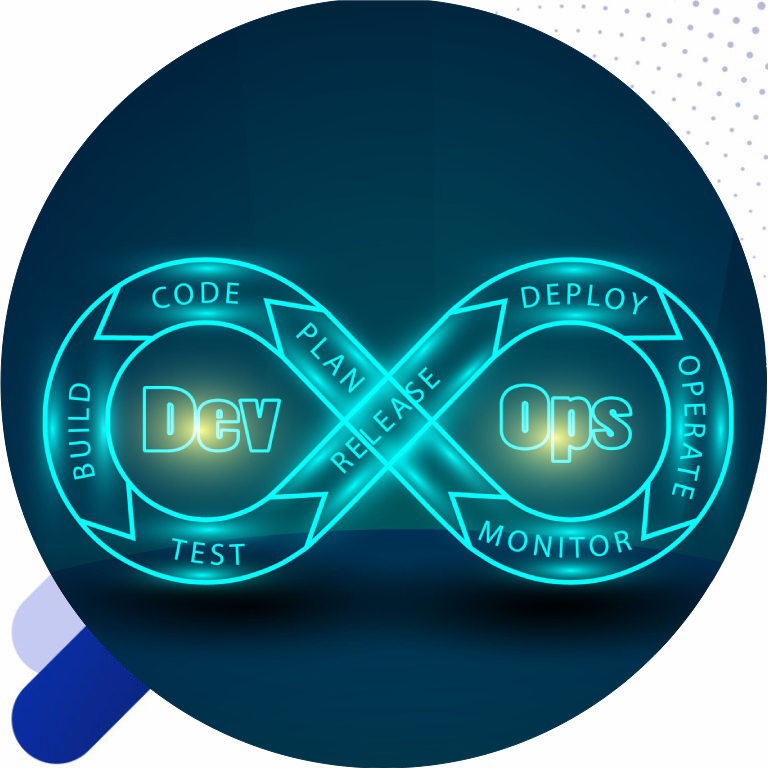DevOps Transformation: Revolutionizing Software Development and Operations
DevOps is a set of practices and cultural philosophies that aims to unify software development (Dev) and software operation (Ops). The goal is to shorten the development lifecycle while delivering features, fixes, and updates frequently in close alignment with business objectives. This transformation emphasizes automation, continuous integration (CI), continuous delivery (CD), and continuous monitoring, facilitating a seamless flow of work from development to production.

Understanding DevOps Transformation
At its core, DevOps is a combination of development (Dev) and operations (Ops), fostering collaboration between software developers and IT operations professionals. The primary objective is to shorten the software development lifecycle while delivering high-quality applications and services more reliably.
The Core Principles of DevOps

Collaboration and Communication: A successful DevOps approach emphasizes open communication and knowledge sharing across teams. This collaboration not only leads to increased efficiency but also fosters innovation as diverse perspectives are harnessed to solve complex challenges.
Automation: Automation plays a pivotal role in a DevOps transformation. By automating repetitive tasks—such as testing, deployment, and infrastructure management—organizations can reduce human error and accelerate the release of software products. Continuous Integration (CI) and Continuous Deployment (CD) are critical components of this principle.
Continuous Improvement: DevOps is rooted in the philosophy of continuous improvement. This involves regularly assessing processes and seeking ways to optimize them. Organizations that embrace this principle are more agile and responsive to changes in market demand and technology.
Measuring and Monitoring: A data-driven approach is fundamental to DevOps. Organizations that effectively track and analyze performance metrics can make more informed decisions, align their strategies with business outcomes, and identify areas for improvement.
Cultural Change: Perhaps the most critical aspect of a successful DevOps transformation is the cultural shift it entails. Organizations must cultivate a culture of trust, respect, and shared accountability to achieve true collaboration.

Benefits of DevOps Transformation
As organizations embark on their DevOps transformation journey, they can expect to witness several impactful benefits:
Faster Time-to-Market
Accelerated Development Cycles: By streamlining processes and automating workflows, DevOps reduces the time from code development to production deployment. This acceleration allows businesses to respond quickly to market changes and customer demands.
Improved Product Quality
Automated Testing and Validation: Automated testing is a cornerstone of DevOps, ensuring that code changes are thoroughly tested for bugs and vulnerabilities. This practice significantly reduces defects and enhances the overall quality of software products.
Enhanced Collaboration and Communication
Breaking Down Silos: DevOps fosters a culture of collaboration between development, operations, and other stakeholders. This integrated approach enhances communication, reduces misunderstandings, and aligns teams towards common goals.
Increased Efficiency and Productivity
Automation of Repetitive Tasks: Automating repetitive tasks such as code integration, testing, and deployment frees up valuable time for developers and operations staff to focus on more strategic activities. This boost in productivity accelerates development cycles and reduces manual errors.
Greater Scalability and Flexibility
On-Demand Resource Scaling: DevOps leverages cloud computing and containerization technologies, allowing organizations to scale resources dynamically based on demand. This scalability ensures optimal performance and cost-efficiency, even during peak usage periods.
Agile Response to Change
DevOps practices support agile methodologies, enabling organizations to quickly adapt to changing requirements and market conditions. This flexibility enhances the ability to innovate and stay competitive.
Improved Security and Compliance
Early Integration of Security
Shift-Left Approach: Traditionally, security was often addressed late in the development process. DevSecOps promotes a "shift-left" approach, integrating security practices early in the development lifecycle. This proactive strategy helps identify and mitigate vulnerabilities before they become critical issues.
Continuous Compliance Monitoring
Automated Compliance Checks: DevOps tools are equipped to perform automated compliance checks against regulatory standards such as GDPR, HIPAA, or PCI-DSS. Tools like Chef Inspec, OpenSCAP, and Aqua Security enable automated compliance testing, ensuring that applications and infrastructure meet required standards throughout the development cycle.
Real-Time Security Monitoring and Response
Unified Security Dashboards: Integrating security monitoring tools with centralized dashboards, such as AWS Security Hub or Splunk, provides real-time visibility into security posture and incidents. These dashboards aggregate data from various sources, enabling teams to detect and respond to threats promptly.
Enhanced Visibility and Auditability
Comprehensive Logging and Auditing
Implementing centralized logging solutions like ELK Stack, Splunk, or AWS CloudWatch ensures that all activities across the development and deployment pipeline are logged and auditable. This visibility supports forensic investigations and compliance audits.
Immutable Infrastructure
Using immutable infrastructure principles, where infrastructure is replaced rather than modified, enhances security and auditability. This practice ensures that environments are consistent and reproducible, reducing the risk of configuration drift and security vulnerabilities.
Speak With Expert Engineers.
Contact us by filling in your details, and we’ll get back to you within 24 hours with more information on our next steps

Please fill out the contact form

Call Us
United Kingdom: +44 20 4574 9617

UK Offices
Business Address: 70 White Lion Street, London, N1 9PP
Registered Address: 251 Gray's Inn Road, London, WC1X 8QT
Schedule Appointment
We here to help you 24/7 with experts

